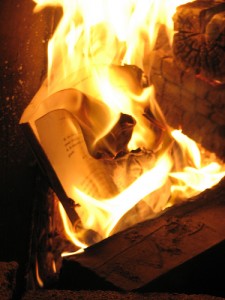 Following reports of NATO personnel burning copies of the Qu’ran in Afghanistan, the United States Institute of Peace convened a closed-door roundtable of scholars, practitioners, government officials, and policy experts to discuss the implications. On March 20, it released a brief based in part on the aforementioned discussion entitled, “The Koran Desecration and the Role of Religion in Conflict,” written by Senior Program Officer Qamar-ul Huda. Key highlights:
Following reports of NATO personnel burning copies of the Qu’ran in Afghanistan, the United States Institute of Peace convened a closed-door roundtable of scholars, practitioners, government officials, and policy experts to discuss the implications. On March 20, it released a brief based in part on the aforementioned discussion entitled, “The Koran Desecration and the Role of Religion in Conflict,” written by Senior Program Officer Qamar-ul Huda. Key highlights:
-The recent desecration of the Koran and Islamic writings caused violent unrest in Afghanistan and raises concerns about essential training in culture and religion for U.S. personnel.
-Basic knowledge of religious actors and their roles in peacebuilding and conflict management is still barely factored in by policymakers and advisers to U.S. government.
-There needs more effort by local, regional, and international religious leaders to promote nonviolent and tolerant reactions even in midst of incendiary events.
-An assessment is needed to evaluate whether efforts at promoting inter-cultural sensitivity are working or not, and identifying processes for mitigating tensions.
For the full brief, click here.











